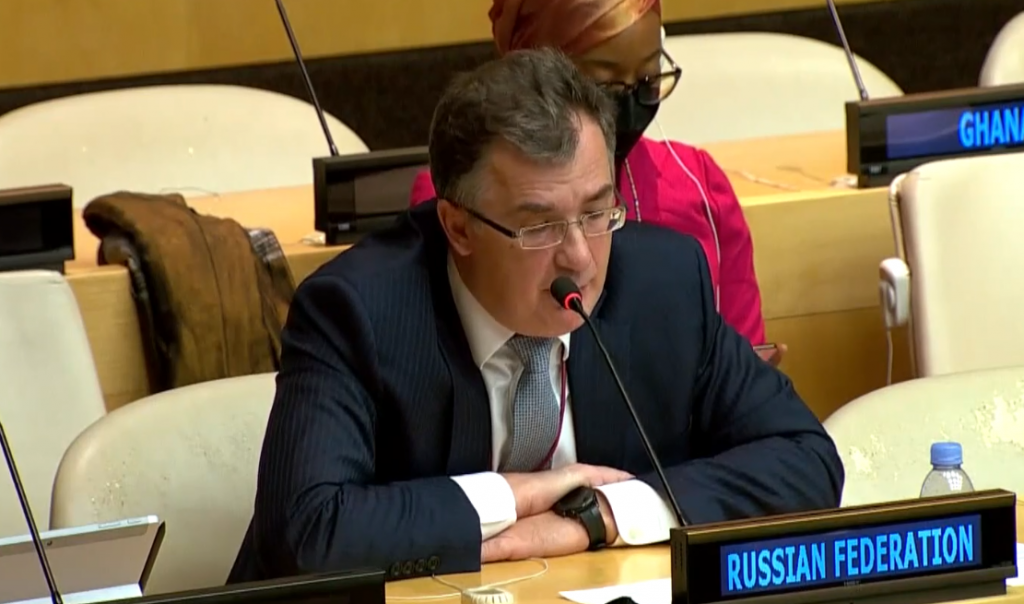Statement by Deputy Permanent Representative Gennady Kuzmin at UNSC
Mme.Chair,
Our appreciation goes to Niger and Norway for convening this discussion. We specifically thank these countries for their initiative to elaborate resolution 2601 that the Council unanimously adopted on 29 October.
This document is a major step towards ensuring educational process and protecting schools and learning facilities in situations of armed conflict. Attacks on schools list among the most appalling crimes against children. They must stop, and all those guilty must be called to account. Protection of schools must be a primary responsibility of states and the international community, if we aspire to sustainable development, peace and concord on the planet. Along with family, school sets the critical ground for personal development and bringing up young people.
As an important achievement, resolution 2601 directly bans attacks on children and civilians connected with schools. Despite the growing reliance on digital technologies, technology will never be able to replace live communication with a teacher. Our task is to preserve the solid pupil-to-teacher bond as a unique method that humanity elaborated to transfer knowledge, life experience and wisdom, humanitarian and cultural ideals to future generations.
Mme.Chair,
Universal norms of the international humanitarian law provide the legal basis for the protection of children in armed conflict. In this regard, we should not overstate the relevance of documents adopted by separate groups of states outside the UN framework. I mean the Safe Schools Declaration, Paris and Vancouver principles. Let’s be frank, those documents have a very specific feature: they envisage a set of obligations that is not totally concordant with the IHL. They are also a little bit naïve. There is, however, a positive aspect as well: all those initiatives are esthetically appealing per se.
Security Council needs to set forth thorough work to preclude six grave violations against children, first of all killing and maiming; and recruitment or use of children as soldiers. By all means, coordinated interaction between SRSG Virginia Gamba, whom we fully support, mechanisms for monitoring of violations and UNSC Working Group on Children and Armed Conflict constitutes an important factor. We cannot but express our concern over the intensifying attempts to politicize the work of the Working Group. The WG must remain an effective auxiliary tool of the Council.
In conclusion, I would like to say thank you once again to Norway and Niger for this opportunity to exchange opinions on the pressing issues of protection of children and schools and providing education services in an armed conflict.
I thank you, Mme.Minister.
